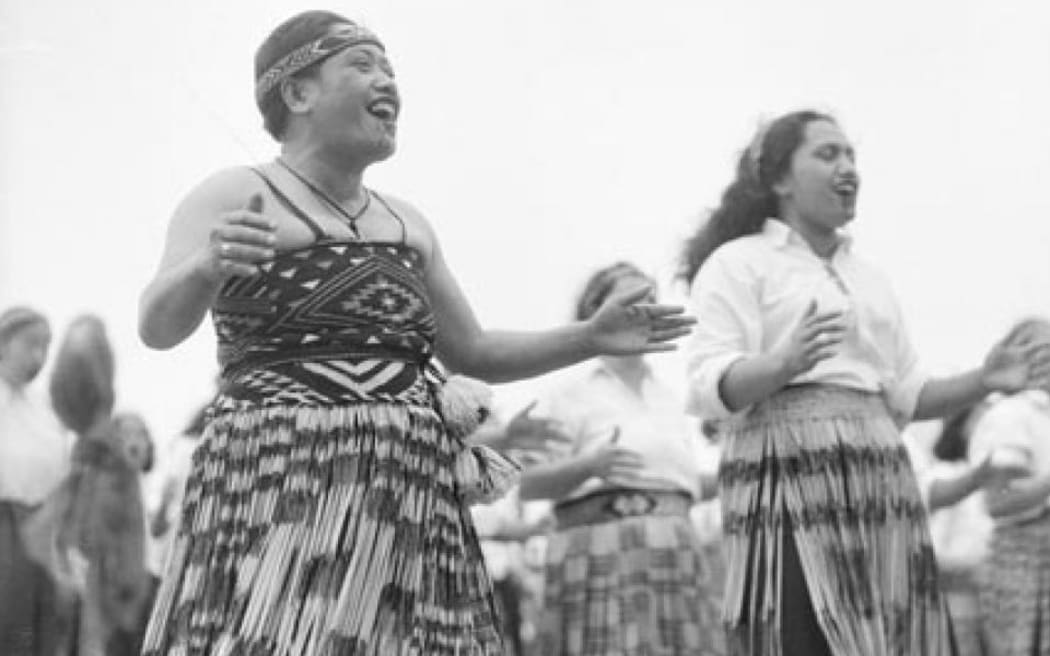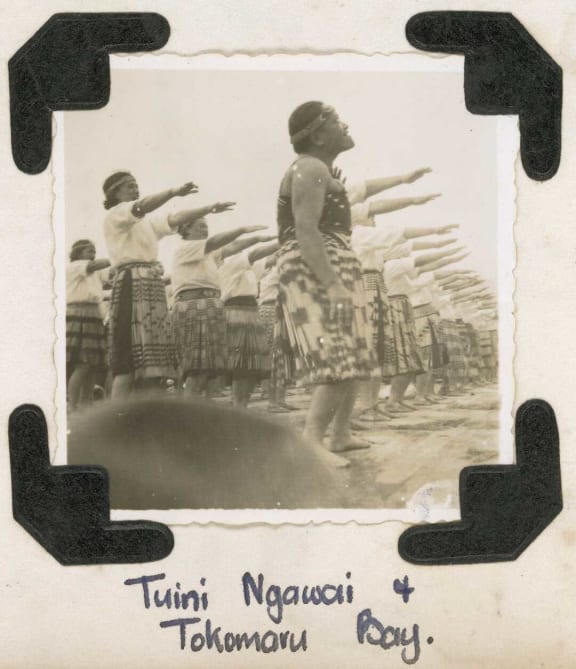The Te Whānau-a-Ruataupare Ngati Porou composer Tuini Moetū Haangū Ngāwai (1910-1965) is not well-known outside the Maori world, even though many of the 300-plus songs she composed are still sung all over Aotearoa New Zealand.

Tuini Ngāwai (left) and her niece Ngoingoi Pēwhairangi. Photo: Supplied by New Zealand Music Hall of Fame
Tuini Ngāwai's waiata, some of which have become New Zealand classics, were often based on popular tunes of the day, and were written for many different occasions. Using archival sources and newly collected interview material, Paul Diamond brings the story of this pivotal New Zealand character to a wider audience. (First broadcast 27/11/2004)
Through Sir Apirana Ngata's influence, Tuini Ngāwai taught Maori culture in schools and went on to lead shearing gangs, even winning the women's section of a shearing competition. Shearing also became the subject of a whole genre of songs she composed.
In Part Two we hear about the shearing songs composed by Tuini Ngāwai, together with her waiata for the kotahitanga movement and her lasting influence on other musicians and composers.

Tuini Ngāwai and Tokumaru Bay rōpū Photo: Courtesy of Alexander Turnbull Library, Wellington.
Tuini Ngāwai, along side her niece Te Kumeroa "Ngoingoi" Pēwhairangi QSM is a 2022 inductee to the New Zealand Music Hall of Fame. Her citation says:
"Tuini Ngāwai (Te Whānau-a-Ruataupare), born north of Tokomaru Bay which remains her resting place, wrote more than 200 waiata throughout her lifetime. She not only composed waiata and action songs but was also a leader in revitalising Māori culture and identity.
Her songwriting involved everything from love, death, war, to informal sing-a-longs written during her time in shearing gangs.
Tuini's waiata are still performed today including popular ditties like ‘Kei Tangi a Big Ben’.Tuini played an important part in Sir Apirana Ngata’s role as Māori Development Minister, catching his attention with her first written waiata ‘He Nawe Kei Roto’.
Tuini formed Te Hokowhitu-a-Tū a performing group whose work assisted Ngata in recruiting for the 28th New Zealand (Māori) Battalion.Tuini wrote many of her finest songs during the war including ‘Arohaina mai e te Kingi Nui’ which was regarded as her masterpiece and became the unnofficial hymn for the Ngāti Porou C Company soldiers.
"Tuini was greatly involved in kaupapa around cultural revival and education. In 1943 Ngata appointed her as a teacher specialising in Māori culture, planting her in East Coast schools to teach tamariki about their culture through song and performance.
She also involved herself in the Kotahitanga movement with a strong determination to restore Māori pride and identity alongside efforts to achieve greater recognition for the Treaty of Waitangi. As always, she had meaningful messages to convey about these kaupapa through songs such as ‘Te Kotahitangarā e.
Her invaluable contributions to kaupapa Māori through waiata and performance formed paths for following generations to continue uplifting the culture through music.
Ngoingoi continued her aunt's legacy, collecting and publishing her compositions and carrying on the indelible cultural revival influenced by Tuini. Ngoi would later publish the book Tuini: Her Life and Her Songs" (Hokowhitu-a-Tu, 1985).
More to Explore:

